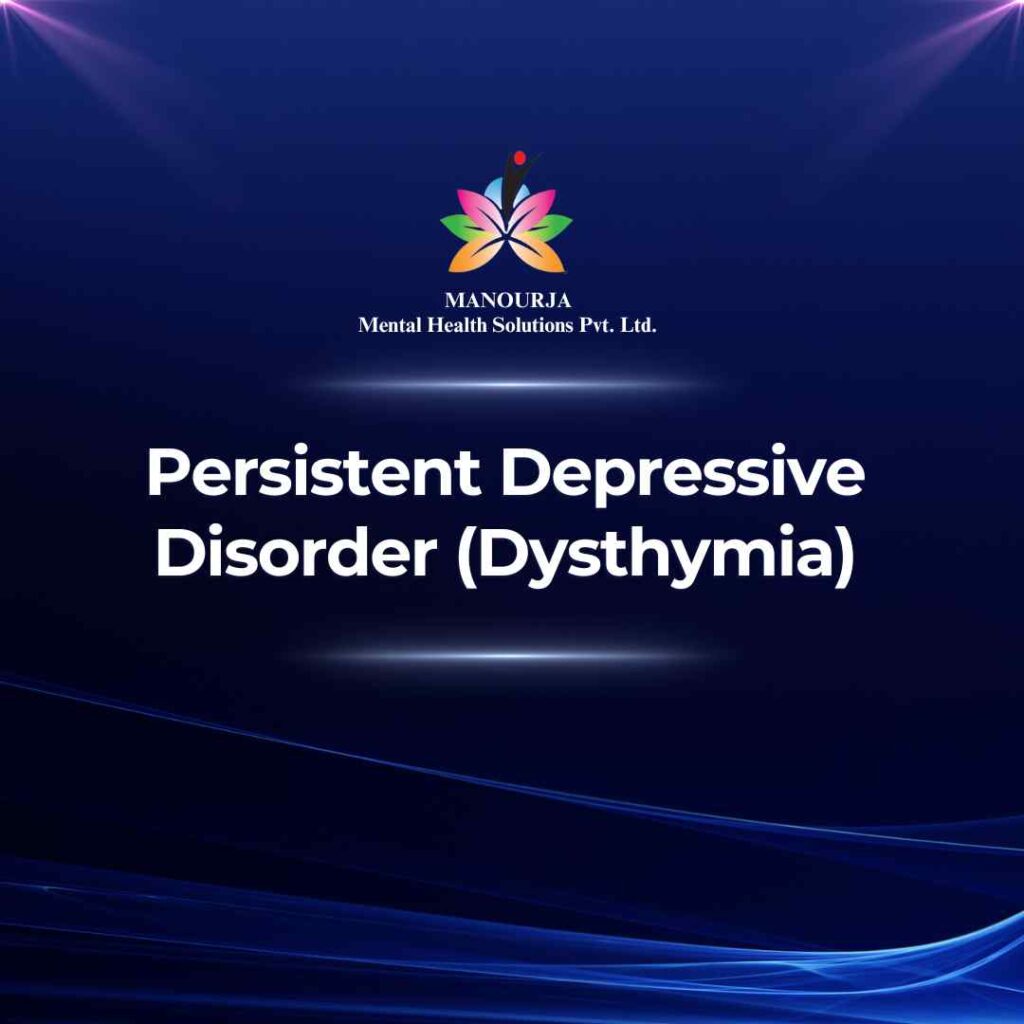Persistent Depressive Disorder (Dysthymia)

Persistent Depressive Disorder (PDD), also known as dysthymia, is a chronic form of depression that lasts for a prolonged period, often several years. Unlike major depressive disorder, which can involve severe depressive episodes, the symptoms of PDD are usually less severe but more persistent.
Understanding the meaning, characteristics, forms, and treatments of this disorder can help in managing it more effectively.
Meaning and Characteristics
Persistent Depressive Disorder (PDD) is defined by a long-lasting depressed mood that continues for most of the day, for more days than not, for at least two years in adults or one year in children and adolescents. The key feature of this disorder is its chronic nature, with individuals rarely experiencing symptom-free intervals for more than two months.
Characteristics of PDD include:
- Persistent sadness or low mood: Individuals often feel down, sad, or hopeless on most days over a long period.
- Low energy or fatigue: Feeling tired most of the time is common, even without significant physical exertion.
- Low self-esteem: Persistent doubts about self-worth and an overall negative self-view are typical.
- Changes in appetite: This can mean increased appetite and weight gain or reduced appetite and weight loss.
- Sleep disturbances: This includes sleeping too much (hypersomnia) or too little (insomnia).
- Poor concentration: Difficulty focusing, making decisions, or remembering things is common.
- Feelings of hopelessness: Persistent pessimistic outlook about the future and life circumstances.
Forms
PDD can manifest in various forms, primarily differentiated by the presence or absence of additional symptoms:
- With anxious distress: Increased symptoms of anxiety co-occurring with depression.
- With mixed features: Presence of manic symptoms alongside depressive symptoms, though not enough to qualify as a full manic episode.
- With melancholic features: Involves a lack of pleasure in all or almost all activities, a failure of mood to improve in response to positive events, and other specific symptoms.
- With atypical features: Characterized by mood reactivity (mood brightens in response to positive events) and positive symptoms such as increased appetite or hypersomnia.
Treatment
Treatment for PDD is crucial as it can significantly impact life quality and functioning. Common treatments include:
- Psychotherapy: Cognitive-behavioral therapy (CBT) and psychodynamic therapy are particularly effective. Therapy helps patients understand and change negative thought patterns and behaviors and cope more effectively with daily stressors.
- Medication: Antidepressants, such as SSRIs (Selective Serotonin Reuptake Inhibitors) and SNRIs (Serotonin-Norepinephrine Reuptake Inhibitors), are commonly prescribed to manage symptoms.
- Lifestyle Modifications: Regular physical activity, a healthy diet, adequate sleep, and engaging in social activities can support recovery.
- Education and Support: Educating patients and their families about the disorder and encouraging participation in support groups can provide additional coping resources.
Managing PDD often requires a comprehensive approach, integrating both psychological therapies and pharmacological treatment. Due to its chronic nature, long-term treatment plans and regular follow-up are crucial for effectively managing the disorder.
At MANOURJA, we believe in the transformative power of counseling. Our experienced therapists offer a safe and supportive space where you can explore your thoughts, emotions, and challenges. Through personalized counselling sessions, we’ll work together to develop coping strategies, build resilience, and achieve lasting positive change. Discover the path to a healthier, happier you with MANOURJA counselling services.
MANOURJA Rehabilitation Services
At MANOURJA, we’re dedicated to helping you in rebuild your life, after difficult times. Our rehabilitation services focus on understanding what you need to move forward, whether you’re recovering from addiction, trauma, or any psychological – social challenges. We create personalized plans, that are all about helping you, regain your strength and find hope again. With a caring team by your side, you’ll have the support to make real progress and take steps toward a brighter, healthier future.
